Tickle In Throat: 7 Effective Home Remedies For Fast Relief
A pesky irritant or a subtle allergy attack – discover what makes your throat itch.

Image: Shutterstock
If you have to describe a tickle in the throat, it can be described as a persistently uncomfortable ticklish feeling. Usually accompanied by a cough, this feeling can make you feel annoyed and cause a lot of inconveniences. Your environment or a medical condition may be the reason why your throat tickles. Most of the time, the tickle in your throat goes away on its own. In this article, we discuss the different remedies you can try at home to get relief from the ticklish sensation in your throat.
In This Article
What Is Tickle In The Throat?
If you have experienced a sensation in your throat that is somewhere between an itch and a tickle, then you know what we are talking about. It is not necessarily a throat infection accompanied by the production of phlegm but can be a precursor of one. Nonetheless, this sensation causes hoarseness in your throat and makes it difficult for you to talk. While the accompanying cough may be irritating, it serves a purpose. A cough is a natural reaction to an irritant or foreign substance in your throat. While in some cases that works, at other times medical treatment is the only way to cure it.
In a study conducted on 5196 participants with a sore throat, 48% of them reported having a sore throat 3-4 times a year, and 18% of them reported having it every month of the year. It was observed that 36% of them seek medical remedies for sore throat. However, you can also manage sore throat or tickle in the throat with some home remedies.
Wondering what may be behind your throat tickles? Let’s explore.
Key Takeaways
- The common causes of the ticklish throat include exposure to environmental irritants, allergens, viral infection, etc.
- Drinking herbal teas and turmeric milk and gargling with salt water may help relieve this discomfort.
- Usually, ticklish throat clears up in 7 to 10 days.
- If it goes beyond the duration mentioned above, seek medical attention.
What Are The Causes Of A Tickle In The Throat?
Let’s look at the different factors that contribute to the development of a tickle throat.
1. Environmental Factors
Exposure to irritants in the environment may cause throat tickles. A few of these factors include smoke, chemicals, dust, cold, and dry air.
2. Allergies
You may develop a tickle in your throat due to exposure to certain allergens. It is one of the common symptoms of an allergic reaction including nasal congestion, cough, and shortness of breath (1). An allergic reaction develops when the antibodies defend the body from foreign substances. Food, medicine, mold, and pollen are elements that may often cause an allergic reaction.
3. Common Cold

A common cold may be the source of your tickle throat. This viral respiratory infection causes symptoms such as an itchy and sore throat, and nasal congestion. . Usually, the symptoms clear up on their own within 10 days. If it lingers for a longer time, it may be a sign of a serious medical condition such as bacterial sinusitisi Bacterial infection that causes inflammation of air-containing cavities surrounding the nose known as sinuses. (2).
4. Laryngitis
Ticklish throat may be a symptom associated with laryngitis. This condition is caused by the inflammation of the larynxi A cartilaginous part of the upper respiratory system, also known as the Adam’s apple, that prevents choking and aids voice generation. from overuse, infection, or irritation. Since it involves the vocal cords, your voice can change, you may feel tickling in the throat, or develop a dry throat or cough (3). One can learn how to get rid of laryngitis with effective home remedies and preventive tips.
Globus sensation is another throat condition that is often associated with an itchy or tickly throat (4).
5. Chronic Cough
A tickle in your throat accompanied by severe coughing for around 8 weeks may be a sign of chronic cough (5). Along with this, changes in your voice and heartburn are also associated with chronic cough.
Sometimes, acid reflux can also cause throat soreness when stomach acids travel up the digestive tract and irritate the lining of the food pipe. If the tickle throat continues causing you distress, try these home remedies that may help you get relief. Read on to know how to get rid of tickles in the throat naturally!
Effective Home Remedies For Tickle In Throat
In most cases, the tickle in your throat clears up on its own. If it persists, give these home remedies a go.
1. Gargle With Saltwater
This is a home remedy that is often used to tackle flu, infections, and allergic reactions
(6). As it requires only two ingredients— salt and water, it is an easy and quick solution to induce throat clearing.
Instructions
1. Add ½ teaspoon of salt to 1 cup of warm water.
2. Take a large sip, gargle for 30 seconds, and spit it out.
3. Repeat this process till the cup of water is finished.
4. Do this 2-3 times a day.
2. Drink Warm And Clear Liquids
Drink herbal teas such as ginger tea and lemon tea to soothe your throat. Follow the steps to make a cup of soothing ginger tea.
Instructions
1. Add 1 tablespoon of honey to 1 cup of water.
2. Add lemon juice from 3 lemon wedges.
3. Grate ½ inch of ginger into the mixture.
4. Stir the tea and drink it slowly.
3. Drink Turmeric Milk To Clear Out The Mucus

Turmeric has been used as a remedy for clearing the mucus in your throat for centuries (7). You can mix it with milk to give it a nice twist.
Instructions
1. In a medium saucepan, boil 1 cup of milk.
2. Add 1 teaspoon of turmeric powder and honey to it.
3. Bring it to a boil and pour the milk into a cup.
4. Drink turmeric milk once a day till the tickle throat is gone.
Sreepradha Venkatramanan, a blogger, talks about how consuming turmeric milk gave her relief from throat pain. She writes, “These days, I have been battling tonsilitis. For relief from throat ache and cough, I have been taking milk with turmeric in it. Needless to say it works wonders (i).”
4. Get Plenty Of Rest
If you believe the throat tickle is due to the flu, getting some rest may be a good idea. Resting as much as possible in the day and getting enough sleep at night is important.
5. Suck On Hard Candies Or Lozenges
Sucking on lozenges or hard candies helps in the stimulation of saliva (8). They keep your throat moist and may help relieve that tickle.
6. Add A Humidifier To Your Room
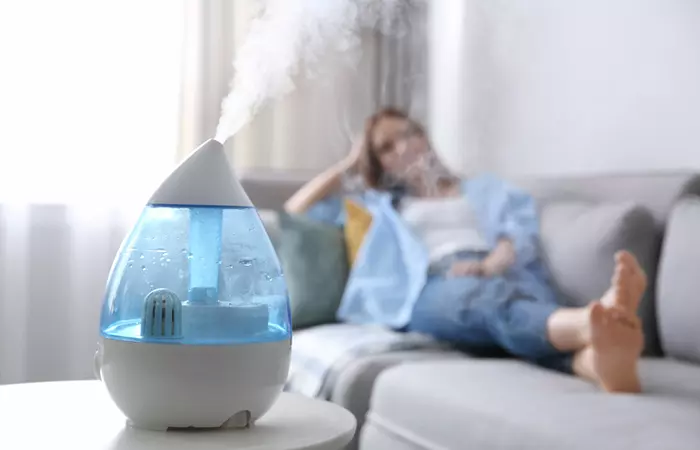
Adding a humidifier to your room may provide relief to your throat as dry air can make your throat feel uncomfortable.
7. Over-the-counter Medications
Another option in how to get rid of a tickle in your throat fast is medication..If the tickle in your throat is due to allergies or infection and the above remedies provide no relief, you can opt for over-the-counter medications. Throat spray, corticosteroidsi A steroid medication available in the form of tablets, sprays and injections, typically used to relieve pain and inflammation. , or antihistamines are some of the best options for relieving a throat tickle.
 Quick Tip
Quick TipEven with home remedies, the tickle in your throat may stay for sometime. In that case, seeking medical attention is the next thing to do.
When To See A Doctor

Ticklish throat tends to clear up on its own within seven to ten days and is not a cause for worry. You must consult your doctor if you experience any of the following symptoms:
- Fever
- Difficulty speaking
- Trouble breathing
- Wheezing
- Difficulty swallowing
 Quick Tip
Quick TipIt is important to understand the cause behind the tickle in your throat to get the appropriate treatment. Learn how this issue is diagnosed in the next section.
How To Diagnose Tickle In Throat
- Patient History: Your doctor will ask your medical history and the duration and nature of your symptoms to understand the issue better.
- Physical Examination: Your throat, nose, and ears are examined for signs of infection, inflammation, or postnasal drip.
- Allergy Testing: Your doctor may ask you to get skin prick or blood tests if allergies are suspected.
- Imaging: X-rays or CT scans may be done to rule out structural issues or throat or respiratory tract infections.
- Endoscopy: Persistent or severe symptoms may require an endoscopy to assess the throat, esophagus, or airway for abnormalities.
- Laboratory Tests: Blood tests and throat swabs may be conducted to identify specific infection-causing pathogens.
Is it possible to prevent the tickle in your throat from occurring? Let’s skip to the next section to find out.
How To Prevent Tickle In Throat

You can try these simple tips to prevent the tickle in your throat from developing.
- Drink plenty of water every day.
- Avoid caffeine, alcohol, and smoking.
- Wash your hands often during flu season.
- Stay away from known triggers and allergens.
- Keep your house clean and free of dust.
- Limit the consumption of cold foods, ice creams, and cold drinks.
- Limit going out during cold weather.
- Use a humidifier, especially in dry environments, to prevent throat dryness.
- Overusing your voice may also irritate your throat and worsen the tickling sensation. So, avoid talking loudly or yelling.
- Use saline nasal sprays to keep the nasal passages moist and flush out allergens, dust, and other particles that may irritate the throat.
- Use air purifiers at home to filter out allergens, dust, and pollutants that can contribute to throat irritation. Also, clean their filters regularly.
Infographic: Foods And Allergens That Cause Ticklish Throat
Ticklish throat can often be one of the first signs of an allergic reaction. Foods that you eat, medicines, or the presence of common allergens in your immediate surroundings may all result in an allergy. Click on the infographic below to know about a list of such potentially allergenic food and environmental factors.
Some thing wrong with infographic shortcode. please verify shortcode syntax
To Sum It Up
A tickle in the throat is an uncomfortable ticklish feeling accompanied by cough. Cold weather, exposure to allergens, or flu can cause that annoying sensation in your throat. Knowing how to stop tickle in the throat can help in such cases. Gargling with saltwater and drinking ginger tea can help combat your ticklish throat. If your tickle throat is followed by fever, trouble breathing, or difficulty in swallowing, consult your doctor immediately.
Frequently Asked Questions
Why won’t the tickle in my throat go away?
A tickle in the throat caused by postnasal drip due to a sinus infection or upper respiratory tract infection may persist over a few weeks, even after the resolution of other symptoms. If you feel concerned about the constant tickle in your throat, it is recommended that you consult a healthcare provider.
Does dehydration cause a tickly throat?
Yes, dehydration may lead to a ticklish sensation in your throat that may worsen to a sore or an itch unless you rehydrate yourself.
Is a tickle in your throat a symptom of Covid?
Although a tickle in the throat is not one of the most common symptoms of Covid, some individuals affected by the virus may experience a tickle or an itch in their throat.
Why does my throat tickle at night?
A tickle in the throat may be caused by a variety of factors such as allergens, cold and flu, GERDi Gastroesophageal reflux disease is a condition in which gastric acids travel up the food pipe and cause an acid reflux. , and dehydration and may occur during the day or the night. However, at nightime, there are less distractions and that may make you more aware of the ticklish sensation in your throat. Therefore, it is crucial to know how to get rid of a tickle in your throat at night. You can have throat lozenges or make some ginger tea. If the problem persists at night, consult a medical professional.
Tired of that tickle in your throat before you sing or speak? Learn how to get rid of it quickly and easily with this helpful video!
Personal Experience: Source
StyleCraze's articles are interwoven with authentic personal narratives that provide depth and resonance to our content. Below are the sources of the personal accounts referenced in this article.
i. Turmeric as a remedy for a sore throathttps://kaimarundhu.blogspot.com/2012/04/turmeric-as-remedy-for-sore-throat.html
References
Articles on StyleCraze are backed by verified information from peer-reviewed and academic research papers, reputed organizations, research institutions, and medical associations to ensure accuracy and relevance. Read our editorial policy to learn more.
- Allergic Reaction: Symptoms Diagnosis Treatment and Management
http://www.jsirjournal.com/Vol2Issue1013.pdf - The Common Cold
https://www.ncbi.nlm.nih.gov/labs/pmc/articles/PMC7152197/ - Acute Laryngitis
https://www.ncbi.nlm.nih.gov/books/NBK534871/ - Globus pharyngeus: an update for general practice
https://www.ncbi.nlm.nih.gov/labs/pmc/articles/PMC4582871/ - Arnold’s nerve cough reflex: evidence for chronic cough as a sensory vagal neuropathy
https://www.ncbi.nlm.nih.gov/labs/pmc/articles/PMC4222929/ - Respiratory Tract Infections and its Preventive Measures among Hajj Pilgrims 2010: A Nested Case-Control Study
https://www.ncbi.nlm.nih.gov/labs/pmc/articles/PMC3793484/ - Turmeric: A Herbal and Traditional Medicine
https://www.researchgate.net/publication/268268687_Turmeric_A_Herbal_and_Traditional_Medicine - Effects of Nine Different Chewing-Gums and Lozenges on Salivary Flow Rate and pH
https://www.karger.com/Article/Abstract/261439
Read full bio of Dr. Monisha Bhanote
Read full bio of Sanchari Bhattacharya
Read full bio of Arshiya Syeda
Read full bio of Dipti Sharma






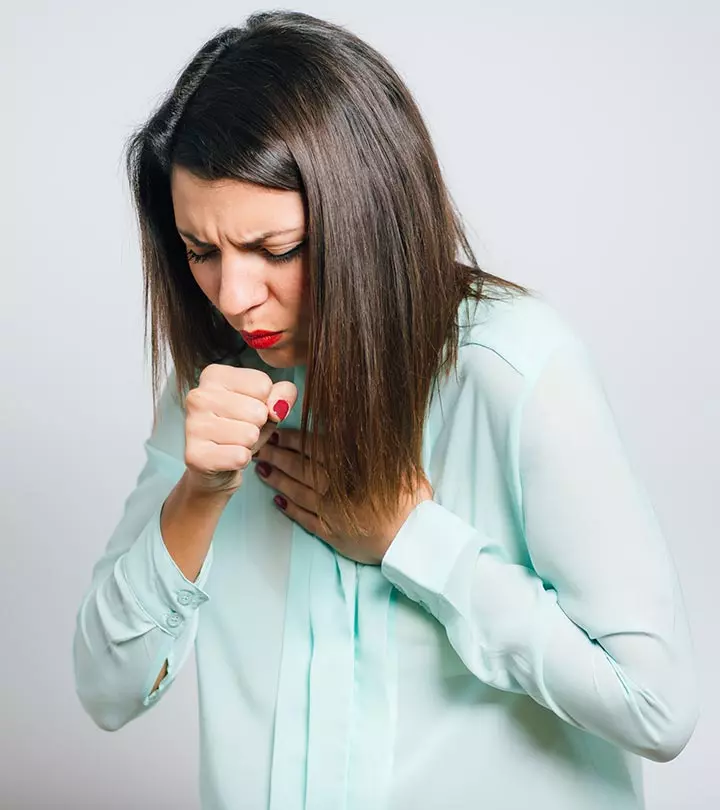

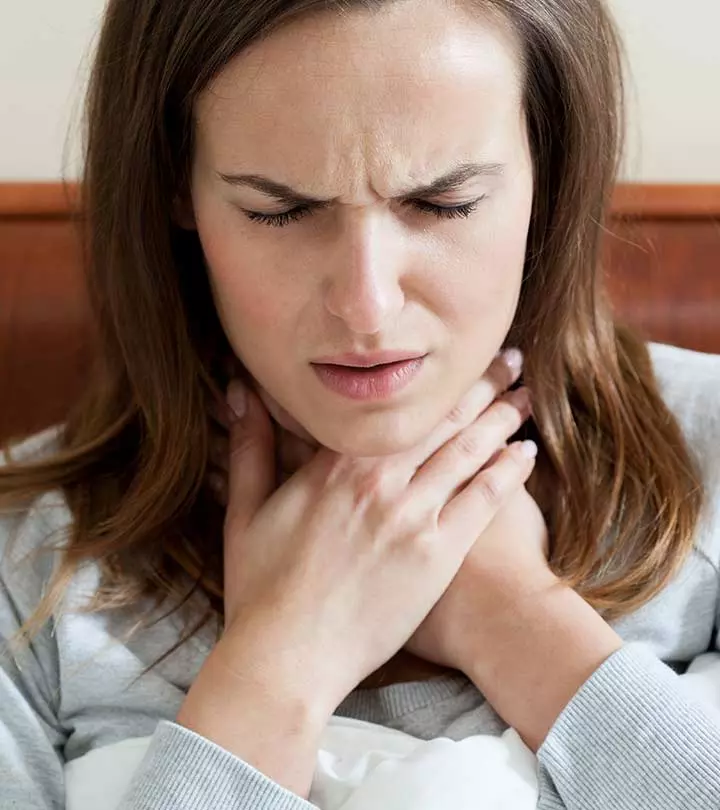

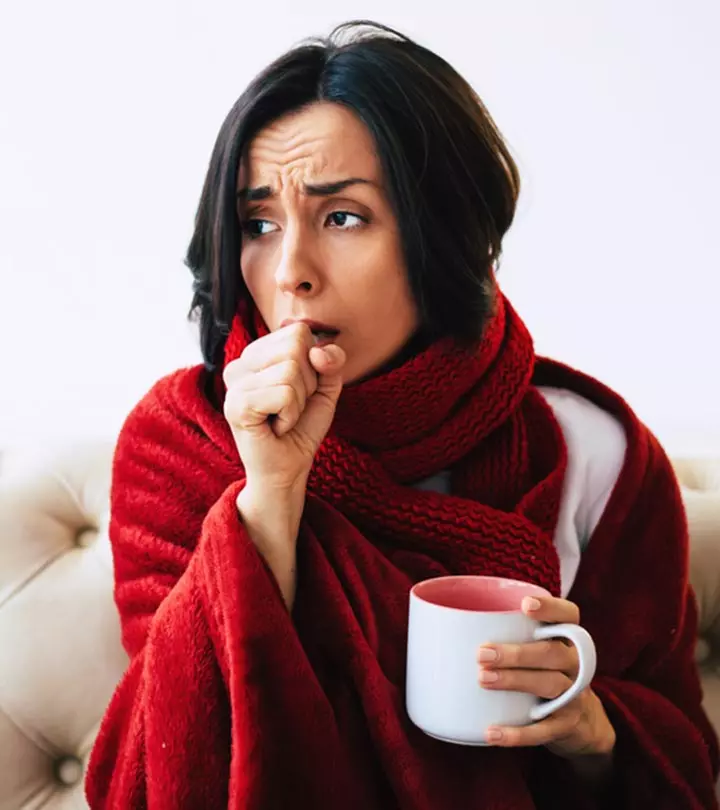









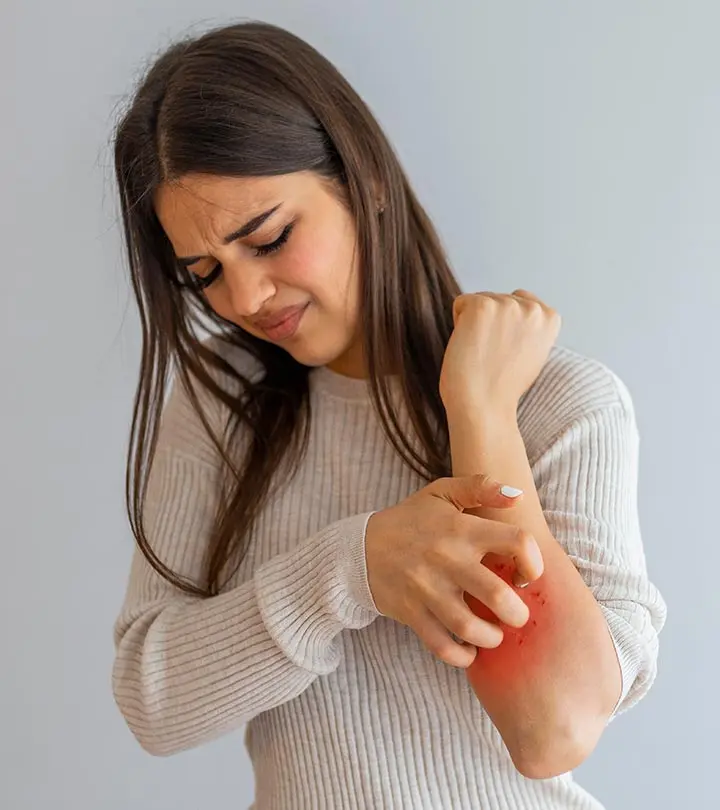


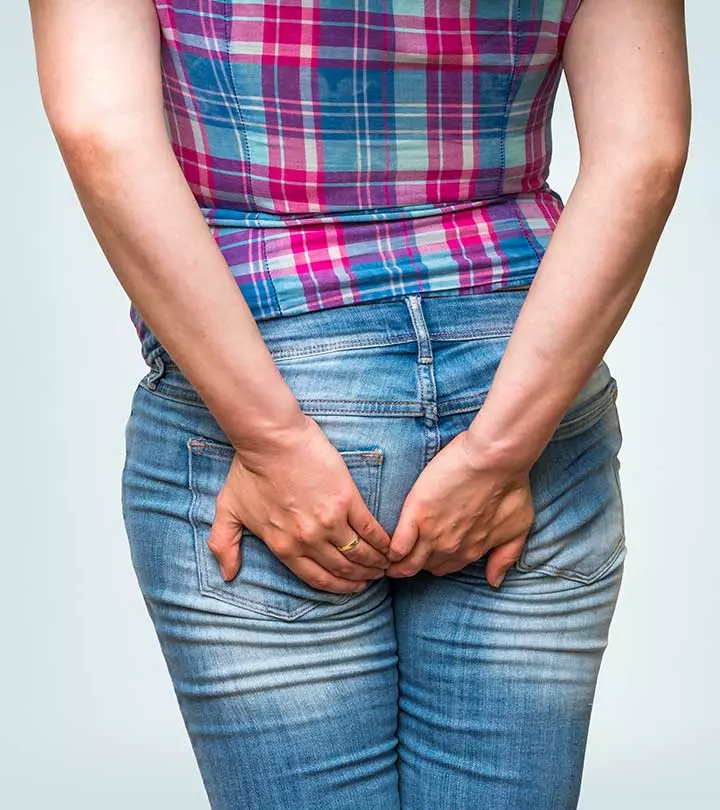



Community Experiences
Join the conversation and become a part of our empowering community! Share your stories, experiences, and insights to connect with other beauty, lifestyle, and health enthusiasts.